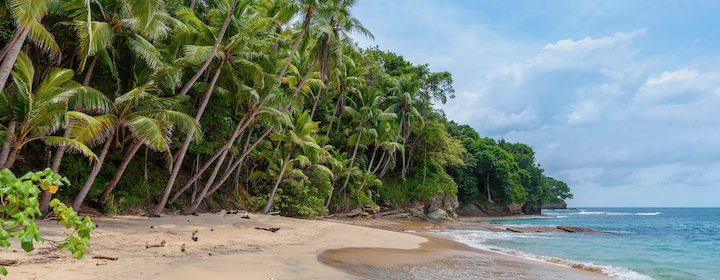Dear IMCW Community,
I’ve been living in Sri Lanka for the last year and a half. When the number of Covid cases was only at 20, the whole country was put under curfew for over a month. Just this week some restrictions were lifted in most of the country, aside from hotspot areas where many cases are still turning up. People can now go back to work but schools are not scheduled to open for a few more weeks and there is no inter-district travel. We have just over 200 cases according to the official count, and 7 deaths, though the true number of cases could be much higher due to lack of testing. After several days with few or no new cases, suddenly some 1000 people were put in quarantine recently from a single neighborhood in Colombo. Social distancing is not as accessible to people living in slums. While the numbers here are nothing like the explosion of Covid cases and deaths in the U.S., this may be a longer journey than we thought.
As in many other countries the curfew is a huge strain on the population because while it prevents the spread of the virus, it also prevents many day-wage laborers and others in precarious financial situations from earning the meager income they already struggled to get by on. How to stop the virus without people going hungry in the process? And even if now people can go back to work, if schools aren’t opening yet, how can parents return to work when they must care for their children? I am thinking also of the orphanage in Colombo where I teach English and mindfulness to 10 girls and how challenging it must be for them and the 2 women caring for them to be confined in their small compound for over a month now, unable to go out to school and run and play.
Personally the need to stay at home has been all right as I already worked from home before and the curfew coincided with recovering from a minor surgery, so the calm and stillness was very conducive to healing. What has been hard however is that my partner and I are splitting up and the relationship I moved to Sri Lanka for has come to an end after two years. We have been living under curfew together in our second apartment in Anuradhapura for several weeks unable to split up physically. We still can’t return to Colombo and begin the process of moving to different apartments until curfew is lifted there. So we are continuing to share space and take care of each other and our common life as friends. We meditate together regularly, eat three good meals each day together, clean up the apartment together, take walks and exercise together, and occasionally watch a movie.
It was really painful right after we broke up to feel the grief of separation and also the awkwardness of sharing a small space together, now no longer by choice, but by necessity. And at times it was overwhelming to face all of the uncertainty of what will come in my own personal life within the larger uncertainty of what will unfold in our societies once the pandemic has passed. All that I had gotten used to relying on in my inner and outer worlds was shifting, at the same time. Now, some weeks later, at least in the personal realm, things feel more settled. I no longer wish for a different outcome and I can accept that conditions were no longer sufficient for us to continue to stay together.
The two main mindfulness practices that have helped me in this time of pandemic are not resisting what is and taking in the good. I am grateful that I don’t blame my ex-partner nor myself for our relationship ending. And as much as possible, I am aware when I’m resisting what is going on in the world and try to let this resistance go. It is true that much of the incredible suffering in the U.S. and other countries might have been prevented by clearer, more responsible leadership, and a more coordinated and unified national response. (Sri Lanka has demonstrated this admirably). And yet, conditions weren’t sufficient for this to happen. It is tiring and painful to give away my energy in blaming and judging.
So I don’t spend much time there and instead focus on what can be done now. I am teaching mindfulness and meditation more online, including with an interfaith panel of women empowering women in Sri Lanka, that I hadn’t connected to previously; I donate to organizations supporting healthcare workers on the front lines, those in detention and unprotected immigrant groups; and I stay connected to what is happening in ways that nourish me and help me understand the deeper roots of this crisis. I was inspired by dharma teacher Larry Ward to connect each day to someone being affected by this crisis and bring them into my meditation, send them compassion and let my heart be moved by their story. And of course another thing this pandemic is making even more clear is the need for all of us to be engaged in the political process, to make our voices heard and vote!
I have also been practicing taking in the good in the precious opportunities to walk around the nearby lake when curfew was lifted for a few hours each week so we could go shopping and run errands. I felt like I was drinking at an oasis in a desert to see the colors of the sunrise, to observe the many kinds of birds performing their diverse wake up rituals, to hear the exquisite swoop of a flock of bright green parrots flying from a palm tree in unison. Then there is making fresh fruit juice from papaya, passion fruit or custard apple and savoring it slowly in the heat of the day. And our landlords, an elderly couple whose upstairs apartment we rent, continuously bring us delicious home cooked food, and we do the same for them. I made a vegan lemon cake for the husband’s birthday last week as the wife is vegan. And I was delighted to finally learn how to grate coconut on an old fashioned grater! We always bought dried grated coconut in a bag and so I hadn’t yet cooked with freshly grated coconut. I went into her kitchen and after she cracked the coconut open with a huge knife she taught me how to sit on her antique grater stool and scrape it carefully. The grater was a gift on their wedding day over 35 years ago and you don’t see that kind around any more. Most people nowadays use more automated ones with a crank. It was fun practicing my Sinhala with her and getting better and better at scraping each time I did it. The pace of life has slowed down enough for me to learn some of these old ways.
May all of us have all the support and connection we need in these difficult times. May we all find ways to release our resistance to what is and open ourselves to take in the good that is in us and around us.
With loving kindness,
Kaira Jewel Lingo



